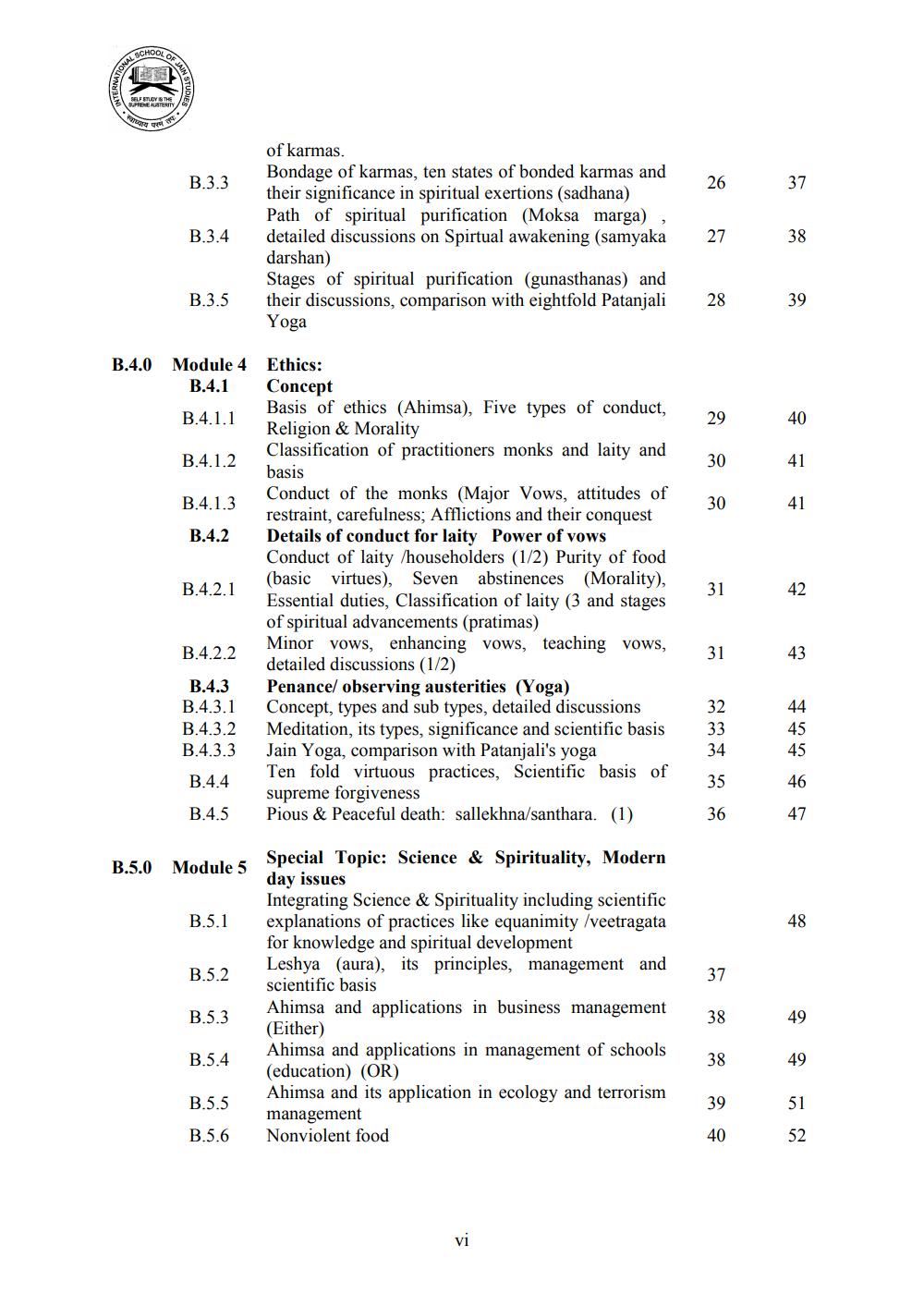________________
INTERNATION
CAN STUDIES
B.3.3
B.3.4
B.3.5
B.4.0 Module 4
B.4.1
B.4.1.1
B.4.1.2
B.4.1.3
B.4.2
B.4.2.1
B.4.2.2
B.4.3
B.4.3.1
B.4.3.2
B.4.3.3
B.4.4
B.4.5
B.5.0 Module 5
B.5.1
B.5.2
B.5.3
B.5.4
B.5.5
B.5.6
of karmas.
Bondage of karmas, ten states of bonded karmas and their significance in spiritual exertions (sadhana) Path of spiritual purification (Moksa marga) detailed discussions on Spirtual awakening (samyaka darshan)
Stages of spiritual purification (gunasthanas) and their discussions, comparison with eightfold Patanjali Yoga
Ethics: Concept
Basis of ethics (Ahimsa). Five types of conduct, Religion & Morality Classification of practitioners monks and laity and basis
Conduct of the monks (Major Vows, attitudes of restraint, carefulness; Afflictions and their conquest Details of conduct for laity Power of vows Conduct of laity /householders (1/2) Purity of food (basic virtues), Seven abstinences (Morality), Essential duties, Classification of laity (3 and stages of spiritual advancements (pratimas) Minor vows, enhancing vows, teaching vows, detailed discussions (1/2)
Penance/ observing austerities (Yoga) Concept, types and sub types, detailed discussions. Meditation, its types, significance and scientific basis Jain Yoga, comparison with Patanjali's yoga
Ten fold virtuous practices, Scientific basis of supreme forgiveness
Pious & Peaceful death: sallekhna/santhara. (1)
Special Topic: Science & Spirituality, Modern day issues
Integrating Science & Spirituality including scientific explanations of practices like equanimity /veetragata for knowledge and spiritual development
Leshya (aura), its principles, management and scientific basis
Ahimsa and applications in business management (Either)
Ahimsa and applications in management of schools (education) (OR)
Ahimsa and its application in ecology and terrorism management
Nonviolent food
vi
26
27
28
29
30
30
31
31
32
33
34
35
36
37
38
38
39
40
37
38
39
40
41
41
42
43
444 45
45
45
46
47
48
49
49
51
52




